South Korea TEFL course
Our South Korea In-Class TEFL Course is a 4 week course which takes place just a few stops away from the vibrant city of Seoul, in Incheon, South Korea. It is tailored specifically for those preparing to teach English in South Korea.
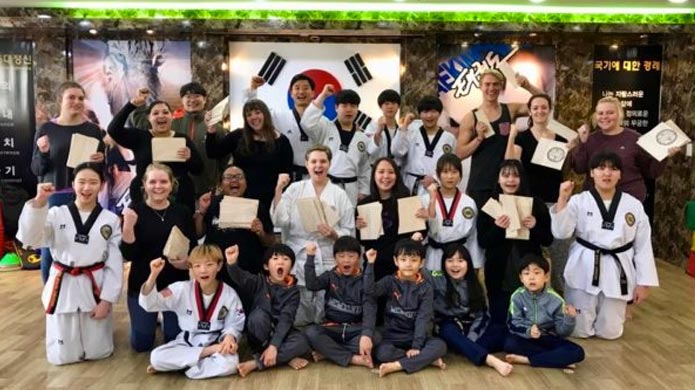
Expert Instructors
Lasting Friendships
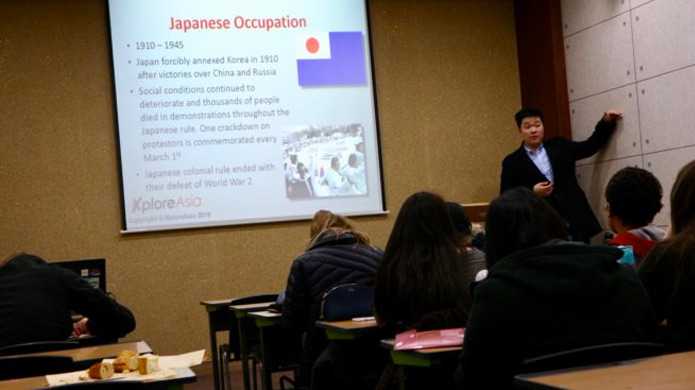
Internationally Accredited
Culture Orientation Included
Course Curriculum
The course focuses not only on teaching the four basic language skills (speaking, listening, reading, and writing), but we also focus on the most effective classroom management techniques, how to cater to learners of all ages, and how to plan, develop, and implement a full-semester curriculum.
- To develop an in-depth understanding of the concepts and principles of teaching English as a second language. This includes understanding the different theories of, and approaches to teaching English
- Understand how the process of second language development occurs
- Understand how to adapt your strategies, techniques, and overall role as a teacher to the different types of students you may have
- Develop the ability to plan structured lessons
- Gain confidence and familiarity with teaching TESOL through significant in-class, and hands-on practical training
- Learn the process of creating and developing a seamless curriculum that fits the needs and interests of your learners
The following topics are covered:
History & Society
- History overview
- Social Institutions
- Gender relations
- Major ethnic groups and relations
- Regions of the country and distinctive local cultures
Geography
- Neighboring countries and relations
- Regions of the country
Politics
- Political situation
- Major social movements and developments
- Political institutions
Culture
- Cultural views on social life
- Cultural views on work life
- Do’s and Don’ts when living in host-country
- Adapting to your new work life (building relationships with colleagues and bosses in the host-country context)
Language
- Basic introductions
- Basic vocabulary
- Vocabulary for shopping, bargaining, and communicating with students and colleagues.
Students will learn the practices for teaching a speaking lesson, how to implement grammar instruction into every lesson, and the structures and key elements of a lesson plan.
Speaking Lesson?
Conversational English skills are highly valued by schools, students, and parents in Asia, and the ability to effectively communicate in English opens up many professional opportunities for locals. It is because of these reasons that many schools want their foreign Native English speaking teachers to specialize in teaching speaking and listening skills.
Learning how to effectively teach a speaking lesson will be one of the first things we explore in the second week of the course.
Lesson plan?
Every lesson requires a detailed lesson plan that lays out the procedures of the class, and also forces the teachers to consider the challenges, technology, resources, and other factors that can have an impact on success in the classroom.
Grammar
During week two, students will also learn how to teach grammar. We will start off with a quick, but in-depth grammar refresher, since many native English speakers may not have reviewed grammar in longer time than we would like to admit!
Reading is an extremely beneficial activity for ESL learners for many reasons including, being a good model for language production, increasing vocabulary, highlighting definitions within a context, etc.
While teaching reading may seem pretty straightforward, believe it or not, there is actually a strategy for how to teach reading effectively. It involves building key reading skills and practicing with students to hone and improve those skills. Many of the skills and strategies that come with teaching reading are similar to that of teaching listening, another topic we will cover extensively during week 3.
Week three is when we will also take a look at the most effective strategies, techniques, and activities for teaching young learners.
Our course is designed to prepare you to teach learners of any age or ability.
Although classroom management is one of the last topics covered, it is essential to classroom success, especially in cross-cultural contexts.
During week 4, we will examine what makes effective classroom management, the primary reasons students misbehave, and also strategies and tactics for dealing with undesirable behavior. During Week 4, we will also examine the most effective techniques for assessing students. We will look at the different types of tests you should conduct with your classes, discuss the best times to give tests, and talk about how you can use test results to better future teaching.
Week 4 is also when we look at how to create and develop a curriculum.
Our course is designed to not only provide instruction on how to create successful single lessons, but also how to string those lessons, topics, and activities together into a seamless and comprehensive curriculum that can be used throughout the length of a quarter or semester.
TESOL instructors hand out TESOL certificates to the new graduates before the graduates celebrate on the beach reminiscing about the fun times they have had together over the past month, the friendships they have made, and for the teaching and traveling which awaits them.
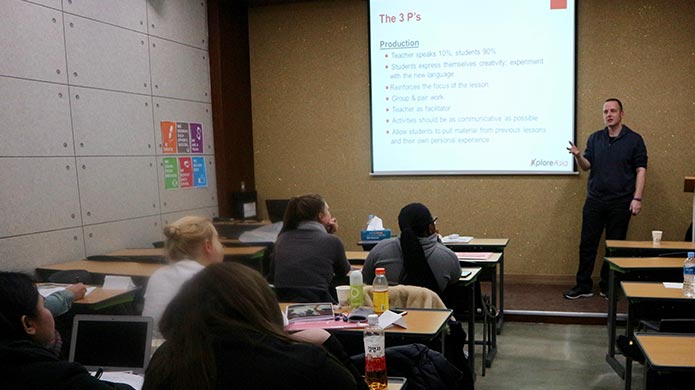
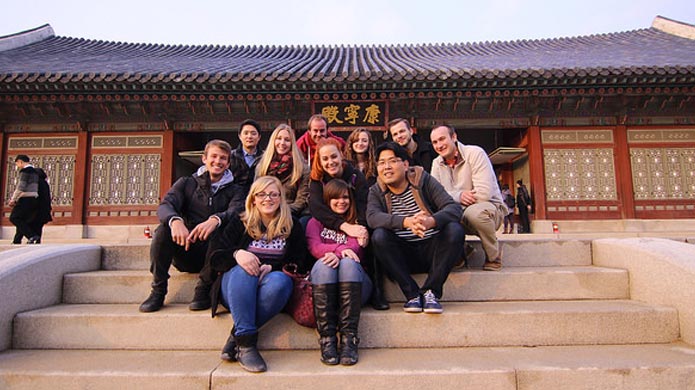
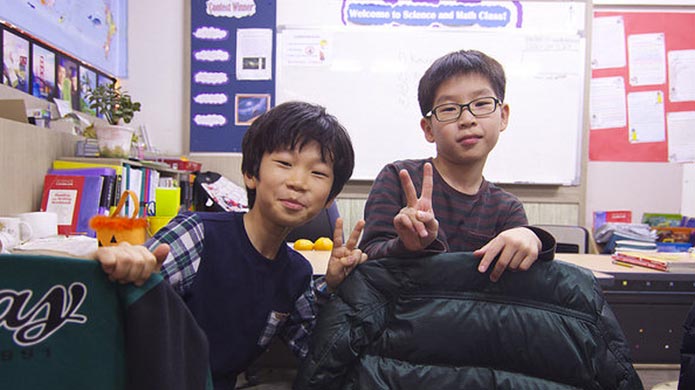
Cultural Orientation
The one week Cultural Orientation section of the course is specifically tailored to preparing Westerners moving to South Korea to live and work.
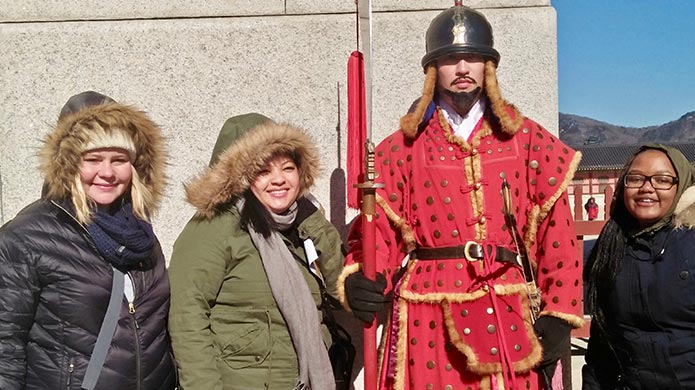
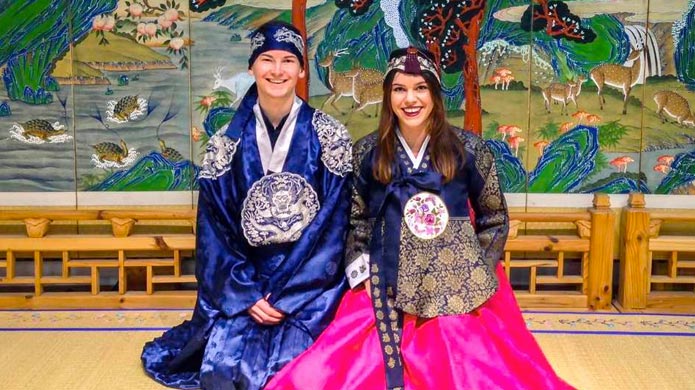
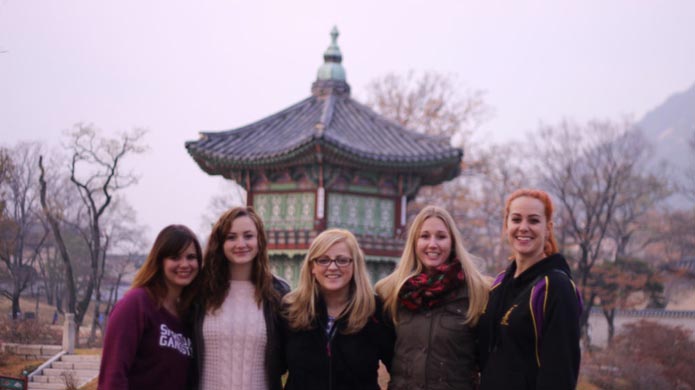
Korean Culture and politics
We explore both the surface, and the underlying components of culture to give participants an in-depth understanding that not only explains the “what,” but also the “why,” of different aspects of South Korean culture.
Korean Language
Our language classes will provide a firm foundation of helpful phrases for interacting within the local community, and in schools and classrooms throughout your adventure on the teach in South Korea program.
Teacher Workshops
It’s a chance to reflect on the challenges and experiences that have shaped us as individuals, what our core strengths and weaknesses are, and how those personal characteristics can help us overcome the daunting task of adjusting to day-to-day life in another country.
Teacher workshop is a chance to talk with other participants, and figure out what barriers to happiness might potentially bar you from dealing with culture shock successfully. By identifying and analyzing our potential barriers to happiness, we can craft solutions and techniques that will allow us to jump over these hurdles and get the most of out of our teaching adventures abroad.
Cultural Excursions & Activities
Here are some of the excursions that make up our cultural orientation:
- Tour of neighborhood where participants stay, including spots to eat
- Visit to Gyeongbok Palace, commonly known as the Grand Palace
- Learn authentic South Korean recipes during a cooking class
- Learn the language in South Korean language classes
- Participate in a taekwondo class
- Welcome dinner
We’re here to help
We’ll answer all your questions and guide you every step of the way!